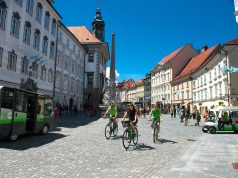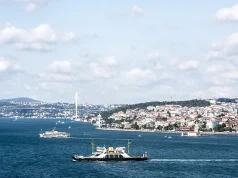After 2020, the COVID-19 pandemic led to global acceptance of work-from-home arrangements. This shift has permanently changed how businesses operate, enabling greater flexibility and opening up opportunities for remote work across many industries. As the digital nomad lifestyle continues to evolve, Europe remains a prime destination for remote workers seeking affordability, reliable infrastructure and cultural richness. Despite a recent shift towards more structured remote work arrangements, many cities across Europe still offer compelling opportunities for digital nomads.
With the rise of the work-from-home concept, people began spending more time at home than ever before. This shift has fuelled the popularity of various online internet activities, including online casinos, which offer convenient entertainment options that fit easily into remote lifestyles. Online platforms like Nettcasino have also adapted to this trend, providing digital nomads with accessible entertainment that complements their flexible schedules. These platforms often combine live casino games, sports betting and slot machines, giving users diverse ways to unwind and engage socially without leaving their homes. Moreover, many online casinos offer bonuses and promotions tailored to long-term users, making them an appealing choice for those balancing work and leisure remotely. The integration of online casinos into the digital nomad experience reflects the broader convergence of work and leisure in the remote work era.
For digital nomads looking to settle in Europe, budget-friendly cities present an ideal balance of cost, culture and connectivity. These cities offers affordable living expenses, robust digital infrastructure and rich cultural scenes that cater well to remote workers. These destinations not only provide comfortable environments for productivity but also vibrant communities where nomads can socialize and explore. Ultimately, choosing such cities allows remote workers to enjoy a high quality of life while maintaining financial sustainability, making Europe an increasingly attractive hub for the modern digital nomad.
Sofia, Bulgaria
Sofia is a top choice for digital nomads looking for an affordable yet culturally rich European city. With a cost of living around €700 to €900 per month, Sofia offers excellent value, especially considering its amenities and quality of life. The city features extensive historical sites such as the Alexander Nevsky Cathedral and the Roman ruins scattered throughout the city centre, offering a sense of timelessness amid modern urban life.
Sofia’s affordable urban living makes it easy for remote workers to enjoy stylish apartments, trendy cafés and reliable public transport without breaking the bank. What truly sets Sofia apart is its growing tech ecosystem, with an increasing number of coworking spaces and tech meetups catering to freelancers, entrepreneurs and startup professionals. Coworking hubs like Betahaus Sofia provide excellent facilities and networking opportunities with the city’s entrepreneurial crowd.
On weekends, digital nomads can explore the nearby Vitosha Mountain for hiking or skiing, offering an easy escape into nature just 30 minutes from the city centre. Sofia also has a thriving nightlife scene, where expats often gather at local bars and lounges, creating a vibrant community for new arrivals. Additionally, online casinos are gaining popularity among Sofia’s remote workers, providing flexible entertainment options after work hours. Platforms accessible from Sofia offer seamless integration of gaming and social features, making it easy for digital nomads to unwind and connect virtually with others worldwide.
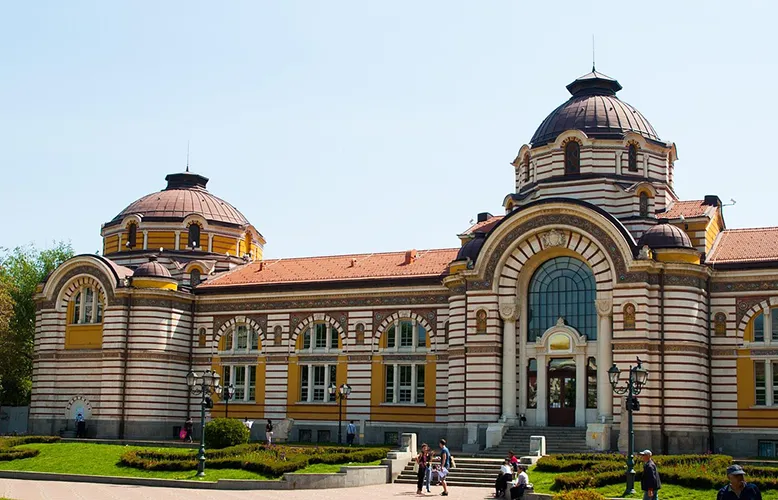
Belgrade, Serbia
Belgrade is quickly becoming a digital nomad hotspot, offering an energetic blend of affordability, culture and connectivity. With a cost of living around €800 to €1,000 per month, the Serbian capital provides excellent value in a city known for its buzzing nightlife and resilient spirit. Belgrade’s cultural diversity is evident in its architecture, cuisine and music scenes from the historic Kalemegdan Fortress overlooking the confluence of the Danube and Sava rivers to trendy neighbourhoods like Savamala and Dorćol, known for their creative energy. The city boasts excellent internet coverage and a growing number of coworking spaces, such as Impact Hub Belgrade and Smart Office, catering to freelancers, developers and remote workers from all over the world.
Digital nomads appreciate the warm social culture, where coffee shops like Kafeterija or Pržionica double as informal workspaces with great espresso and fast Wi-Fi. Belgrade’s low cost of accommodation allows remote workers to live comfortably in central locations without breaking the bank. The city’s central position in the Balkans makes it a great base for traveling to nearby destinations like Sarajevo, Skopje or Bucharest. This mix of dynamic city life, digital infrastructure and affordability continues to draw remote professionals looking for a flexible and culturally rich base in Eastern Europe.
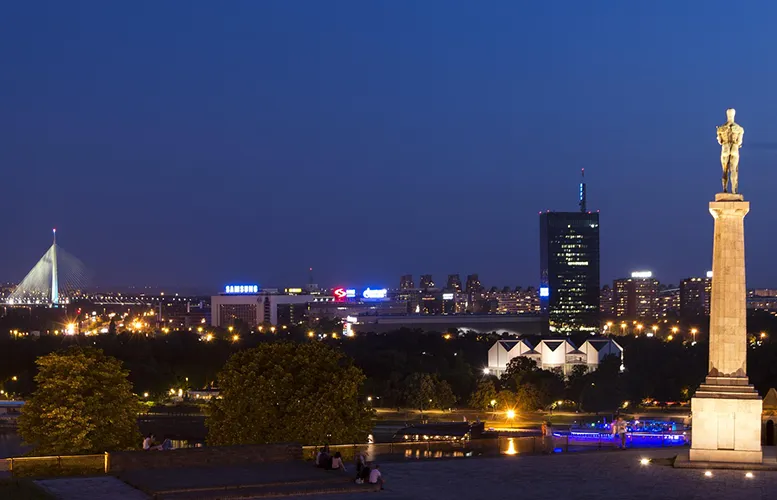
Vilnius, Lithuania
Vilnius offers digital nomads an appealing blend of historic charm and modern conveniences at an affordable price, with a cost of living around €800 to €1,000 per month. The city’s medieval Old Town, a UNESCO World Heritage site, features cobblestone streets, baroque architecture, and vibrant cafes, creating an inspiring environment for creativity and work. At the same time, Vilnius embraces modern living with a growing number of coworking spaces like Talent Garden Vilnius and Workland, which provide excellent facilities and foster a thriving startup community. The city’s supportive environment for startups and tech companies has attracted entrepreneurs and freelancers who benefit from networking opportunities and government-backed innovation initiatives. This balance between tradition and innovation makes Vilnius an ideal place for digital nomads seeking both cultural richness and professional growth.
Many nomads enjoy spending their downtime exploring local markets, such as the Hales Market or relaxing in green spaces like Bernardine Garden. Affordable housing options abound in districts like Naujamiestis and Žvėrynas, offering everything from modern apartments to charming historic buildings. Vilnius is also known for its safe, walkable streets and efficient public transport system, simplifying daily commutes. Additionally, Vilnius hosts regular cultural events, music festivals, and tech meetups, ensuring that digital nomads have plenty of opportunities to connect and unwind outside of work hours.
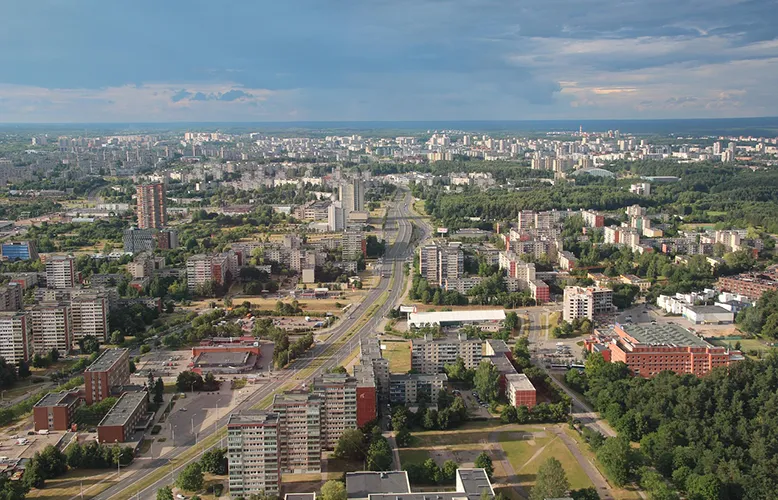
Skopje, North Macedonia
Skopje is an increasingly popular choice for digital nomads seeking a balance of affordability and cultural depth. With a cost of living ranging from approximately €600 to €800 per month, the city provides excellent value without sacrificing comfort or convenience. Skopje boasts rich historical architecture, including landmarks like the Stone Bridge and the Old Bazaar, alongside vibrant local markets that give a glimpse into the region’s authentic daily life. Its growing digital infrastructure, including improved Wi-Fi connectivity and a number of coworking spaces, supports remote work with ease. What sets Skopje apart is its unique blend of ancient history and modern amenities, offering both cultural exploration and work-friendly environments.
The city’s bohemian Debar Maalo neighbourhood is filled with cozy cafés perfect for working remotely during the day and unwinding with local wine in the evening. For weekend getaways, the nearby Matka Canyon offers stunning views and kayaking adventures, ideal for recharging outside the city. Skopje is also home to affordable and high-quality dining, where a full meal at a traditional restaurant costs as little as €5. Many digital nomads also appreciate the low rental costs, often finding fully furnished apartments in the city centre for under €300.
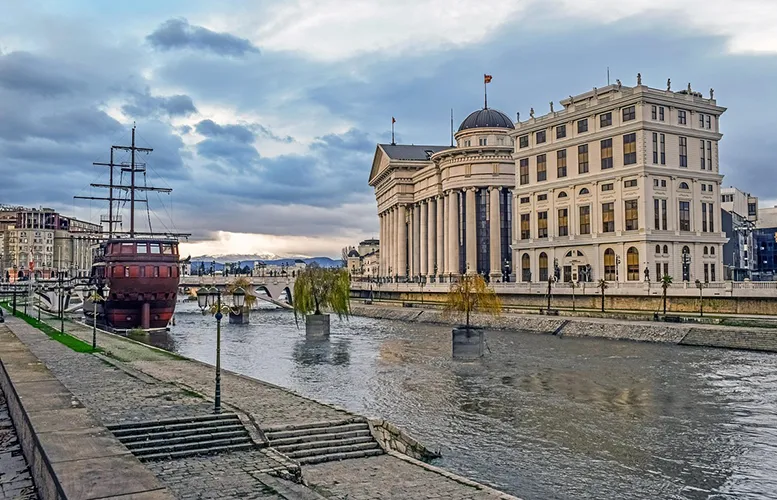
Tirana, Albania
Tirana is fast becoming a favorite among digital nomads drawn to its vibrant culture and affordability. With a cost of living of approximately €600 to €800 per month, Tirana offers one of the most budget-friendly urban experiences in Europe without compromising on lifestyle. The city delivers a dynamic blend of modern energy and Balkan charm, with colourful architecture, innovative street art and a café culture that supports a relaxed yet productive remote work lifestyle. Its emerging startup ecosystem is gaining traction, with a number of tech incubators and coworking spaces like Coolab and Destil Creative Hub catering to a growing community of freelancers and entrepreneurs. Tirana’s youthful energy, walkable neighbourhoods, and welcoming locals make it especially appealing for digital nomads seeking fresh perspectives and cultural depth.
The Blloku district, once a restricted area for communist elites, is now a hotspot for trendy bars, stylish cafés, and co-working lounges that appeal to young professionals. Outdoor lovers can escape to Mount Dajti National Park, just a short cable car ride from the city, offering panoramic views and hiking trails perfect for a weekend recharge. Affordable long-term rentals are easy to find, with fully equipped apartments available for under €300 per month in central neighborhoods. The city’s evolving digital infrastructure ensures stable internet connectivity, allowing remote workers to stay productive from anywhere.
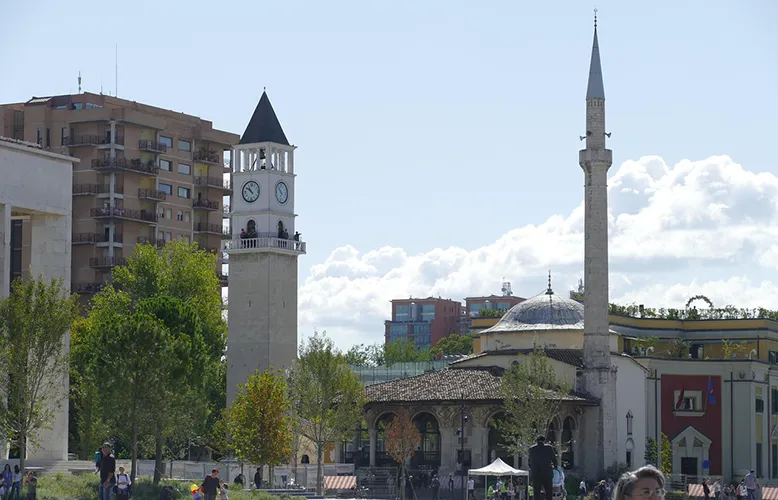
Budapest, Hungary
Budapest stands out as one of Europe’s most attractive cities for digital nomads seeking a mix of culture, connectivity, and affordability. With a cost of living of approximately €1,000 to €1,200 per month, the Hungarian capital offers excellent value for money considering its rich history, scenic architecture, and high standard of living. The city is famed for its iconic thermal baths such as Széchenyi and Gellért, which provide a unique way to relax after a productive day.
Its robust digital infrastructure, with fast internet and a growing number of coworking spaces like KAPTÁR and Loffice, supports the demands of remote work with ease. Additionally, Budapest’s blend of Austro-Hungarian architecture, lively ruin pubs, and vibrant art scene make it a culturally rich place to live and work.
Digital nomads can enjoy scenic work sessions along the Danube River, take weekend strolls across the Chain Bridge, or explore the historical Buda Castle District. The city’s excellent public transport system, including trams, metro and electric scooters, makes getting around easy and affordable. Affordable apartment rentals are widely available in trendy neighborhoods like District VII (Erzsébetváros), known for its nightlife and food scene.
Online casinos have also found a growing user base among Budapest’s remote working community, offering convenient and entertaining ways to unwind after long hours of work. Online casino platforms cater to this demand by providing seamless mobile access and a wide variety of games, aligning well with the digital lifestyle of modern nomads. This seamless blend of work, play and urban comfort is why Budapest remains a top-tier destination for remote professionals across Europe.
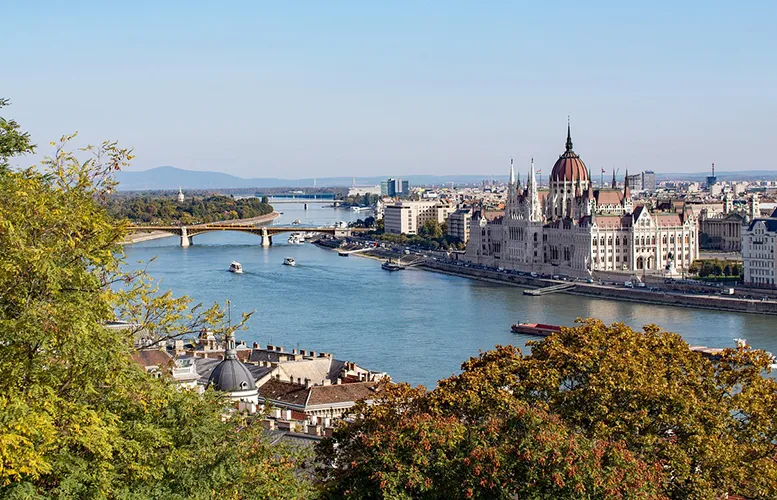
Riga, Latvia
Riga is an increasingly popular destination for digital nomads thanks to its unique combination of affordability, culture, and growing technological infrastructure. With a cost of living approximately between €900 and €1,100 per month, Riga offers budget-conscious remote workers an attractive balance of quality and cost. The city is famous for its stunning Art Nouveau architecture, particularly in the central district, which provides a beautiful and inspiring backdrop for daily life.
Beyond its historical charm, Riga boasts a burgeoning tech scene supported by incubators like TechHub Riga and coworking spaces such as Workland, which foster innovation and community among freelancers and startups alike. This makes Riga not only a place of cultural richness but also a hub for productivity and networking.
Digital nomads can enjoy working from cozy cafés like MiiT Coffee, known for its excellent coffee and reliable Wi-Fi, or from stylish coworking spots where collaboration is encouraged. The city’s efficient public transport and walkable centre make commuting easy and stress-free. Affordable long-term rentals are available in vibrant neighborhoods like Latgale Suburb and Agenskalns, offering both modern apartments and traditional Latvian homes.
Riga’s proximity to the Baltic Sea means weekend trips to the seaside town of Jūrmala are an easy escape for relaxation and fresh air. This seamless blend of old-world charm and new-world convenience helps Riga stand out as a comfortable and inspiring base for digital nomads in Europe.
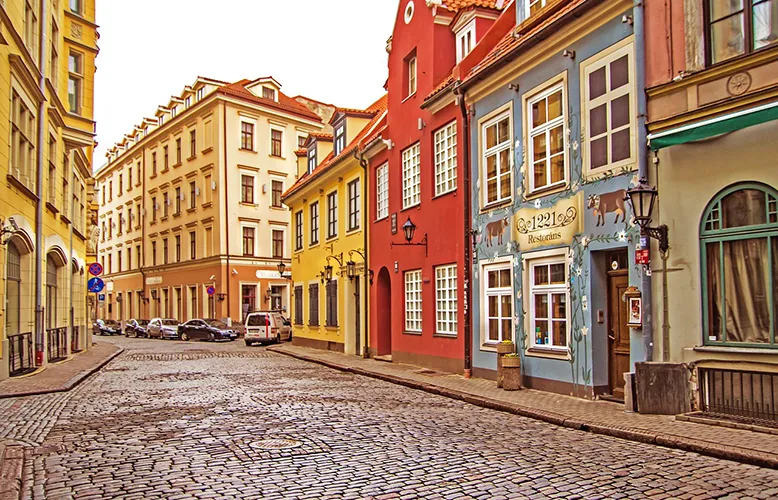
Final Thoughts
These European cities offer digital nomads a combination of affordability, reliable infrastructure and cultural richness. As the remote work landscape continues to evolve, destinations like these provide opportunities for digital nomads to thrive while maintaining a balanced and fulfilling lifestyle. Beyond cost and connectivity, these cities foster vibrant communities where remote workers can network, collaborate and find inspiration.
With growing numbers of coworking spaces, cafes with strong Wi-Fi and events tailored to digital nomads, they support both productivity and social engagement. Additionally, many of these cities offer easy access to natural beauty and cultural experiences, allowing nomads to recharge outside of work. As digital nomadism becomes more mainstream, the integration of local lifestyle elements and modern technology makes these European cities uniquely suited to meet the demands of flexible, location-independent professionals.
Whether you seek bustling urban hubs or quieter historic towns, these destinations present a diverse range of options to suit different preferences and working styles.


